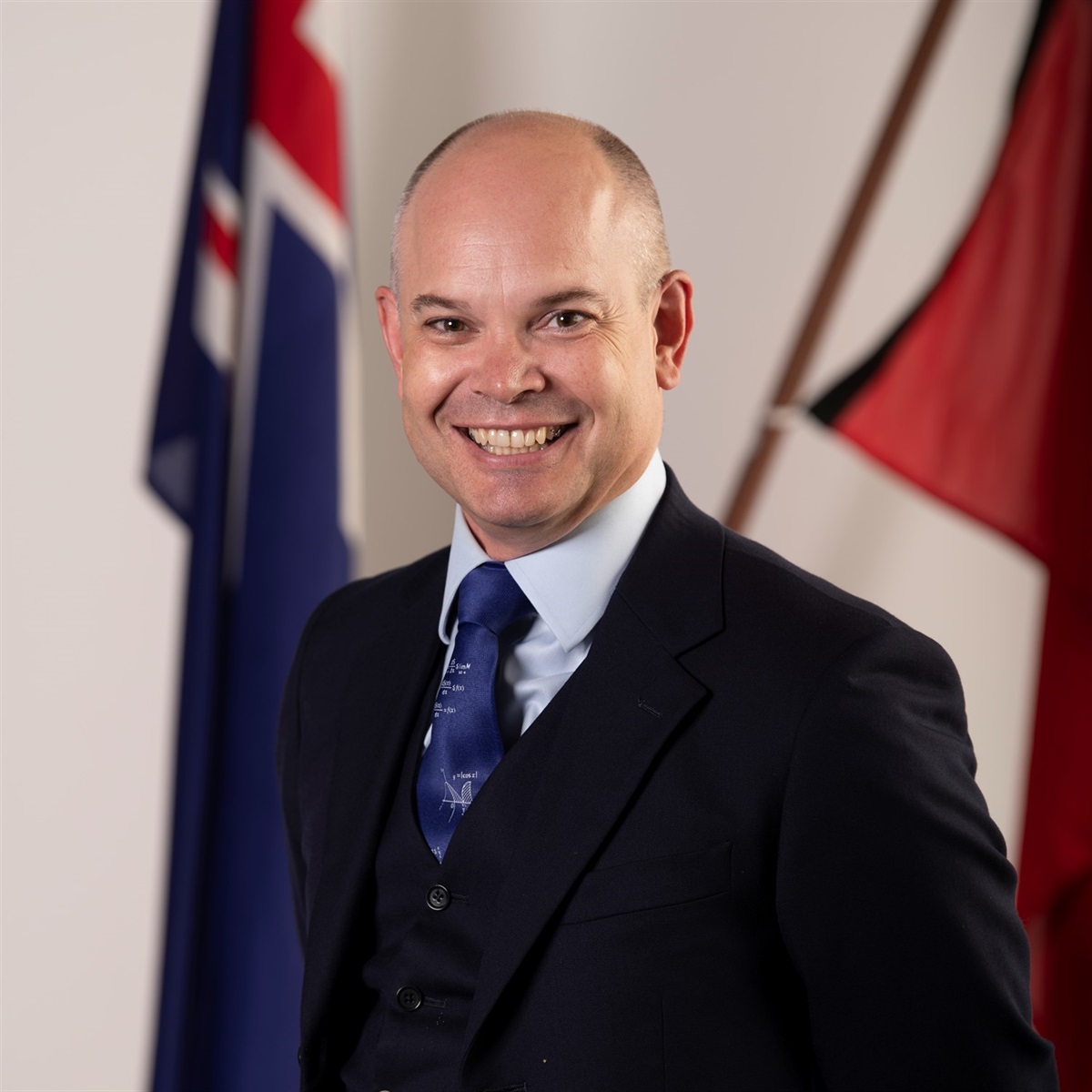Dr Leonie Suter is a meticulous scientist and environmental DNA (eDNA) researcher. She’s also spontaneous. Not your garden variety kind of spontaneity, though.
She possesses a wilder, freer type of spontaneity. The kind of spontaneity that makes you say yes to someone you’ve just met asking you to sail around the world with you – even though you don’t have a clue how to sail a boat.
The kind of spontaneity that makes you say yes to working on a chimpanzee rehabilitation camp on The Gambia River – replete with no running water and profound communication barriers.
Leonie is the kind of woman who was prepared to bid her young family goodbye for two months to go on an Antarctic voyage in a quest to make further discoveries on Antarctic krill by analysing environmental DNA – only for plans to go on ice ‘because of COVID’. Because of all that, we think she’s a pretty interesting character.
We spoke with Leonie about leadership, her Swinburne Professional course, and navigating the world of science as a woman (and a mother of three children aged under six!).

Leonie’s research with the Australian Antarctic Division focuses on eDNA and Antarctic krill. From just two litres of water, she can detect and monitor their numbers and reveal clues about the impacts of fishing and climate change. Here, she’s studying live Antarctic krill under the microscope at the Marine Research Aquarium at the Australian Antarctic Division, as part of a project to find gene expression differences between male and female Antarctic krill.
A life filled with curiosity, nature and adventure
Leonie grew up in Basel, Switzerland as a daughter of two musicians and one of three girls. She describes her childhood as one filled with curiosity, nature and adventure.
While she’s achieved enormous success, Leonie never had a career goal as such. What she did have was a burning passion for biology and an insatiable curiosity to understand how life works and how communities interact.
“The driver for me being a scientist is this curiosity and wanting to understand how nature works,” she says. “I think my curiosity is an intrinsic thing I’ve always had.”
Gender matters
Leonie says being one of three girls was an empowering experience. “There were never ‘boy’ and ‘girl’ things in my family growing up,” she says. “I think because we were just as one gender in our family it was never something that really mattered.”

Gender didn’t matter in Leonie’s family. That philosophy encouraged her to believe she was capable of what she set her mind to – even if that was sailing around the world (with zero sailing experience!). Here she is sailing the High Arctic in Svalbard.
But as she climbed up the ranks with her research, she began to notice that gender did matter and biases were in play.
“During my studies, high school, undergraduate, my master’s degree and my PhD I never felt my gender was an issue. It wasn’t on my radar,” says Leonie. “More recently though, I’ve noticed that in science the higher up you go, the more men you find.”
Career plateau during motherhood is an all too common story for childbearing women. And Leonie thinks there is more we can be doing as a society to help correct this imbalance.

Leonie with her husband and three daughters atop Kunanyi, Hobart.
“Across the board, women are probably still taking on larger portions of caring responsibilities for young children,” she says. “When you reduce your work hours to balance family as well as your career, you’ll never be at the same level or have the same publication output as someone who doesn’t have that commitment. We need to keep normalising that men can take time off for caring duties without getting penalised. We need to attach merit and value to the work parents do outside of their careers.”
But Leonie stresses it’s not only gender we should be focusing on. Instead, we need perspectives from all kinds of people with more diverse backgrounds. “It’s been proven over and over again that diverse teams can be more productive and innovative and that’s where the strength comes in,” says Leonie.
Lifting each other up
At Australian Antarctic Division, Leonie has found many role models. Women who have balanced family and career and have even gone on long expeditions with young children at home. “What really inspires me is how generous these women are with what they’ve achieved and how willing they are to share with others. If I can achieve anything similar I’d be really proud,” she says.
Building support networks and connections is something Leonie believes is incredibly important in helping your career, no matter what stage you’re at.
Recently, she and her team completed a custom-designed science-based leadership course at Swinburne Professional. Through a series of six whole-day workshops specifically designed for early- to mid-career researchers, 23 participants from across the Australian Antarctic Division’s science branch delved into topics like emotional intelligence, communication, teams and conflict, resilience, innovation and change management.
The experience proved invaluable for Leonie. “One of the most powerful things was that it really connected people from across programs who would not normally speak to each other,” says Leonie.
And it paid off in other ways, too. Science can be a challenging and unpredictable career. And finding a permanent position and funding for research projects can be difficult. After completing the Swinburne leadership course, Leonie’s contract was up for renewal. Completing the leadership course gave her the confidence and skills to negotiate and upgrade her contract.
“Swinburne Professional’s leadership course helped me feel confident enough to say ‘based on my experience I think I should be classified in a different stream.’ Negotiating a different classification means I’ll have greater opportunities for progression in the future. If I hadn’t asked, nobody would have put me in that stream,” says Leonie.

Leadership skills come from all different places and experiences. Whether it be a custom-design leadership course at Swinburne, or getting thrown in the deep end leading a chimpanzee rehabilitation project in The Gambia, where Leonie took this photo. “It was a really incredible experience. It did teach me a lot about leadership – how to step into new and very different situations that are well and truly outside of your comfort zone,” she says.
Knowing your value is invaluable
Leonie says that having resilience and the confidence to find and use your voice is key – in any industry.
“As a woman, you need to be willing to stand up for yourself and be heard – to speak out for yourself. Everybody says it, but networking really is so important. Connecting to people. Not being shy to ask senior people for advice. At some level, so many opportunities can come up if you know the right people. Of course, you have to be a good scientist too, but that’s not always enough.”
She encourages other women to be confident to speak up.
“That goes from being confident to ask questions when you’re not sure about something, to be confident to give an expert opinion even when you might not know everything about the topic, to be confident in contract negotiations,” Leonie says. “That’s something the Swinburne Professional leadership course really helped me with.”
If you are looking to explore customised leadership courses for yourself or your organisation, explore Swinburne Professional courses, call Swinburne Professional on 1800 633 560








